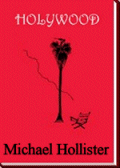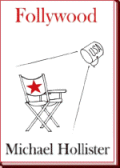Novelist & Critic
HOME PAGE
BIOGRAPHY
MODEL OF METAPHORS
DANEgerus
Patrick Garry, novelist
Apocalypse Now
The Best Years of Our Lives
The Big Chill
Billy Budd
The Bostonians
Casablanca
Citizen Kane
Close Encounters of the Third Kind
Coming Home
Daisy Miller
The Day of the Locust
Dr. Strangelove
Easy Rider
Fail-Safe
A Farewell to Arms
The Front
Gone with the Wind
Good Night, and Good Luck
The Graduate
The Grapes of Wrath
The Great Gatsby
Guilty by Suspicion
High Noon
Huckleberry Finn
Invasion of the Body Snatchers
Key Largo
The Majestic
Meet John Doe
Moby-Dick
The Old Man and the Sea
On the Waterfront
The Player
The Red Badge of Courage
Reds
The Scarlet Letter
The Shrike, based on Miss Lonelyhearts
2001: A Space Odyssey
The Sun Also Rises
Triumph of the Will
The Way We Were
Wise Blood
The Wizard of Oz
Woodstock
The World According to Garp
Peter Carafiol
Free Speech
Metaphor
archetype
Blacklist
Hollywood Novels
McCarthyism
Communist propaganda
Dr. Strangelove
Two months after a Communist killed President Kennedy, a movie was released that gossip suggested might be Communist propaganda, directed and co-written by Stanley Kubrick with Peter George and Terry Southern. Dr. Strangelove; or, How I Learned to Stop Worrying and Love the Bomb had been scheduled to preview on the same day Kennedy got shot and had to be delayed. Eisley felt a lot of anxiety about how the public would react to such a picture so soon after the tragedy. He hoped for the sake of his career, and Sarah's, that the visibility of Communists and their supporters in town would diminish, not increase. He knew of Kubrick as an art film maker excelling at camerawork and special effects, a radical by nature though not, so far as Eisley knew, a Communist. His latest film was about a pedophile. When the reviews of Dr. Strangelove did not expose any propaganda, Eisley felt relieved. However, Kubrick's black humor was hip and his picture was a nuclear bang at the box office.
That worried Eisley.
As soon as he had a chance, he took Paula out to see it at a luxury theater in Beverly Hills. She liked to get stoned in the car and then go in and sit down close to the front to absorb the maximum impact from sensory effects, tripping out, as kids were saying these days. Since he first began seeing Paula, smoking marijuana helped him feel younger.
Kubrick used a style of print on the screen that made his words look chalked on a blackboard, as though his picture would be an illustrated lecture. The black and white show began with a disclaimer from the U.S. Air Force stating that procedures were in place that made the plot of this movie impossible. Yet Kubrick's vision was based upon the premise that nuclear annihilation was not only quite possible, it was probable. Contrary to real life circumstances, a single U.S. Air Force general is able to launch a nuclear attack on the Soviet Union from a Strategic Air Command base within the continental United States, with a wing of bombers that are subsequently recalled and shot down except for one plane with its communications damaged by a Soviet defense missile. The Soviets have constructed a Doomsday Machine that will destroy the whole earth if even a single nuclear warhead hits their country anywhere--even a remote missile base near the Arctic. Presumably, total annihilation could also be triggered by an earthquake, a volcanic eruption, a mine explosion, a large plane crash, a nuclear accident or a meteor.
Eisley thought the absurdity of Kubrick's concept turned his paranoid nightmare into a cartoon farce. He knew that most people who saw this movie would feel the paranoia and be so entertained by the visual effects, the sound track and the dark comedy that they would not pay much attention to implications of the plot. He himself got preoccupied appreciating the photography and comedic acting, especially by Peter Sellers, who played three different roles and made the picture worth seeing whatever its faults. Sitting beside him, slouched down and gawking upward with light from the screen changing quickly on her face, her lips slightly parted, Paula looked enthralled. She forgot to eat her popcorn. The clever filming and mirroring and projecting seduced her visually conditioned modern sensibility so easily, addicted as she was to sensations, going with the flow, that Eisley expected this picture to be popular forever.
He felt jealous and therefore glad to see that Kubrick had a leering eye, which reduced his perspective to a horny adolescent male ridiculing his elders. He used easy sexual symbolism at every opportunity--a bomber fornicating in flight with a refueling plane, a pilot riding a nuke down to an ultimate orgasm and much talk in the end about surviving alpha (white) males having dutiful sex with surviving babes in the safety of a mine shaft, as if the arms race was merely penis envy. Even the name Peter Sellers was a phallic pun aimed at the weapons industry. Eisley knew what Sarah would say. Leave it to Hollywood to reduce all motivation to sex. And to ridicule military and religious people. All four of the principle military officers in the film are portrayed as cartoon idiots: Slim Pickens as a Texas cowboy bomber pilot, a colonel named Bat Guano and two generals who are the only religious people in the cast, Buck Turgidson a warmongering hypocrite with a mistress and Jack Ripper, a suicidal anti-Communist maniac who destroys the world. At the same time, Eisley had to admit that Kubrick seemed contemptuous of everybody. The only female in the picture is a bimbo. Premier Kissoff and President Sellers are equally silly, Americans and Soviets are portrayed as equally culpable and stupid, democracy and totalitarianism are morally equivalent.
President Sellers looks exactly like Adlai Stevenson, the liberal Democrat defeated for the presidency by Eisenhower. He is so uninformed about procedures in a national defense emergency that he is incompetent and controlled by the military. The real President when this script was written was a liberal Democrat who just the year before had stood up to the Soviets in the Cuban missile crisis and prevailed. President Sellers is helpless, but this is not his fault, he is a victim, except that he is employing a Nazi as Director of Weapons Research and Development. According to Kubrick, simply by developing nukes to defend against nukes, without firing a missile America has become the equivalent of Nazi Germany, even if our President should happen to be a wussy liberal, a victim of circumstance who "does not want to become the worst mass murderer since Adolph Hitler." This picture was made by an alienated Hollywood director in a British studio with a British star and conveys a British nuclear freeze movement perspective embodied in the sane and competent and properly secular and wholly innocent RAF Captain, prisoner of war and endearing hero Peter Sellers.
Leaving the theater, he stopped himself from taking Paula's arm. He had to keep remembering not to do that. They emerged through the crowd hunched in their overcoats against a chill that seemed to come from the Cold War. They walked quickly to his silver Jaguar sportscar gleaming in the lights along Sunset. He went over and tipped the bouncer standing outside The Star Lounge for keeping an eye on it for him. He did not open the door for Paula as he used to do for Sarah.
As soon as they got seated inside his Jag, she pulled out her little pipe and lit up, sucking deeply several times.
"Well, that was scary," she passed it to him.
"Did you see Sterling Hayden?"
"Who's he?"
"He played the anti-Communist general who destroys the world. Sterling Hayden was a Communist."
"I thought that was just a lot of McCarthyism."
"No, he was a Communist all right." Eisley lit the pipe and took a hit. "Hayden was in a group called Hollywood Fights Back that went to Washington to support the Hollywood Ten. The Ten were Communists who got subpoenaed by Congress. Hayden went along and didn't step forward when the leaders asked the group if any of them were Reds. Then he got exposed by a newspaper and the group got seen as a Communist front. Very embarrassing. Later he betrayed his friends again by naming names in testimony. Then he felt bad again about testifying and re-recanted back again. Yeah, Hayden was a Communist." He passed her the pipe. "That makes him a hero in Hollywood."
Paula took a hit, then exhaled slowly.
"In school they said there weren't really any Communists in Hollywood at all. It was just a witch hunt."
He accepted the pipe, "Maybe I'll tell you about it some time."
"I don't care about politics."
"Anyway, casting a famous Communist like Hayden as a crazy anti-Communist is a big joke. Though most people won't get it. Kubrick is giving the finger to Americans."
"He's really funny!"
It bothered Eisley that he could laugh so hard and be so entertained by something so juvenile. Being a hip adolescent was such an advantage now that he started feeling jealous again. And he marveled at how in-your-face movie propaganda had become. According to his colleague at Fox, director Ed Dymytrk, one of the original Hollywood Ten who did time in prison for contempt of Congress, the hearings by the House Un-American Activities Committee in the forties and then in the early fifties had prevented the Communist Party from taking over the movie industry. Nevertheless, the infamous Blacklist had been a mere blip in the careers of most Communists in Hollywood who sided with the Soviet Union and refused to cooperate with the United States--a strange love indeed.
The next afternoon in his office at Universal, he got to thinking further about Strangelove. He wondered what Sarah thought of it. He was sure she must have seen it, she was always interested in art films. He missed her. He still felt bad about leaving her behind in Phoenix, but he was angry that she still would not adapt to him. He did not feel guilty about her Faulkner picture though. He kept his promise. She stayed in his mind, nevertheless, distracting him from work until he had to call her, just to talk. It would be their first conversation since their divorce had become final. When she answered, he flooded her with charm.
"Can you forgive me?"
"I always do."
"That helps, Sarah. It really does."
"I was hoping you'd call."
"You were?"
"We're still members of a family you know."
"Listen, sweetheart," in his softest tone, "I want you to know that I'm still trying to get distribution for your film, but it's a bad time for art pictures, as you know, and--"
"--That's all right, Ryan. You don't have to explain. I know you're busy. I appreciate whatever you can do."
"Hey, have you seen Strangelove?"
"Oh, yes."
"What did you think?"
"Well, let's see. It ends with our leading defense scientist giving a compulsive Nazi salute--like an erection actually--to our President. We disabled Nazism in the war, but now we've become Nazis ourselves. We're Nazis, Ryan."
"Yeah, that's deep."
"Where have we heard that accusation before?"
"Okay, but that doesn't make him a Communist."
"Casting Sterling Hayden?"
"That's just a joke."
"Who did he remind you of?"
"I don't know. General Curtis LeMay, I guess. He's a big hawk in the Air Force."
"Who else? All those ominous shots of his face from low angles. All that sinister lighting and ranting against Communists. He wants a list of names and he yells for more ammo. Who is the most hated politician in Hollywood? When he pulled that machine gun out of his golf bag and started firing at Americans. You didn't think of Tailgunner Joe?"
"McCarthy! That fucking bastard!"
"No, I didn't think you would."
"The bastard is everywhere!"
"All the hatred of McCarthy is there. The slander. Like, he was insane because he was celibate, supposedly. That must mean he was starved for sex. That makes him even worse--a no-fucking bastard! Ryan, come on. Isn't that a diagnosis you would expect from people in Hollywood?"
"I confess."
"Kubrick is projecting his own paranoia. McCarthy didn't start a war. Kubrick hates him for making life a bit less comfortable for subversive juveniles like himself."
"That still doesn't make him a Communist."
"What's the funniest line in the picture?"
"Aaah, I'd say when Bat Guano threatens to blow off Sellers' head if he commits any 'pre-versions' in the phone booth. Pre-versions. That sounds like a reference to Method acting, doesn't it. At least he's on the right side of that issue."
"The funniest line in the picture is when Hayden says the Communists are trying 'to sap and impurify all of our precious bodily fluids'."
"Yeah, you're right. That is the funniest line."
"McCarthy was crazy. There were no Soviet spies who stole our atomic secrets. The Cold War is a fraud. There was never any threat from Communists in Hollywood or anywhere."
"Tell that to Jack Kennedy," he sighed.
"And our Korean War vets."
"And millions of Russians and East Europeans and Germans and Cubans and Koreans and Chinese--"
"--Kubrick compares Communism to fluoride introduced into the water supply! Fluoride is good for us!"
"Audiences will never see that."
"I think Kubrick is also mocking Kennedy. One of Kennedy's themes during the campaign was a 'missile gap' between us and the Soviets. Kubrick has the screwball General Turgidson say we can't allow a 'mine-shaft gap'."
"Yeah, I heard that."
"Another sex joke."
"So Kubrick is just another blowfish?"
"Oh no, I wouldn't say that. He's literate. He makes allusions to Melville and Poe. And he's very talented visually."
"I have one more question."
"What is it?"
"Will you marry me?"
After a long pause, she finally replied, "You know that remakes are nearly always worse than the original."
"Depends on the casting."
"That is a problem, isn't it."
"Not for me, Sarah."
In the days thereafter, Eisley kept thinking about Strangelove. It appeared to him that in a slow dissolve, leftists were eroding support for military preparedness, which was the legacy of the sneak attack on Pearl Harbor. They were subverting it with the cynicism of film noir hyped up into apocalyptic pessimism made tolerable by black humor, weakening the will to maintain an adequate national defense. Lighten up! they laughed darkly. By generating paranoia making nuclear war seem inevitable, peaceniks were scaring audiences into the belief that disarmament was essential to survival, whether the Soviets disarmed or not. The slogan Better Red than Dead was sweeping the world--especially in France of course. The leftists did not want to go down fighting, if it came to that, they wanted to surrender and join the Party. Haunted by the sinister whumping of choppers, Eisley hoped that President Johnson did not increase our commitment in Vietnam, because there were so many younger Americans now, especially in the universities, who would refuse to fight.
Hollyworld, pages 47-54.
The
HOLLYWOOD
Trilogy
Three historical novels dramatize Hollywood's global influence from the 1930s to the present age of terrorism, through the life stories of Sarah McCloud, a farm girl from Oregon, and Ryan Eisley, the son of a beer distributor from Ohio.



Click Book to Order